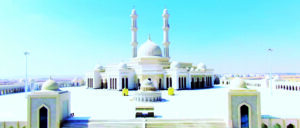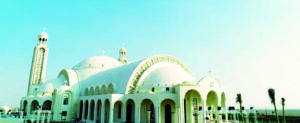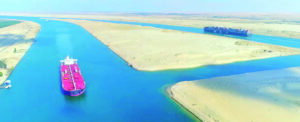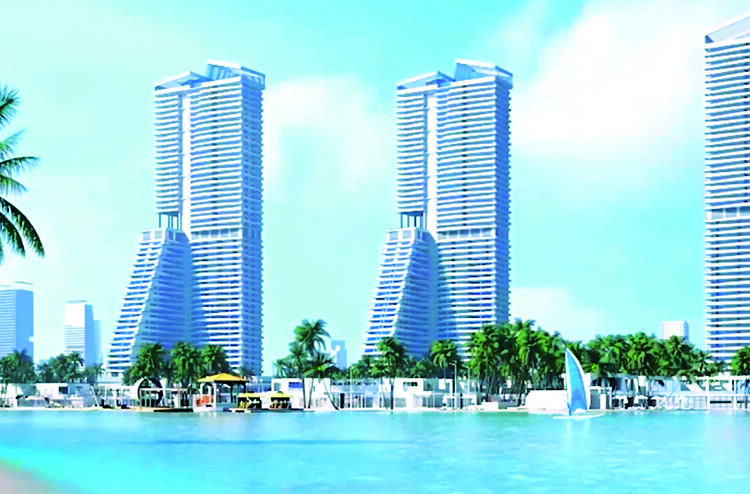Imagine an elderly relative shielding his eyes with his hand and surveying the expanse of housing and wide roads that are characteristic of new cities and the settlements.
“I remember it when it was all desert,” he might say.
The last thirty years have witnessed considerable change in this country, the most populous and the most literate in the Middle East and Africa. In the 1980, the only computers available were rare, expensive and slow, requiring considerable patience and a cassette like the one you would put in that other fad of the Eighties, the Walkman. Remember? Indeed, we have come a long way since those pre-smart phone days, now that proud parents snap their children’s school performances on i-pads and commuters scroll through little screens as they are whisked downtown in what feels like a twinkling of an eye, but is in fact 20 minutes to Attaba.

When it opened in 1988, the first line of the underground metro was dubbed the ‘fifth pyramid’ for its daring breakthrough in transport engineering. Thirty years on, we have the beginnings of an extensive network of underground travel. In a few years, taking the tube to the international airport will be taken for granted.
At the eastern terminus of line 3 of the metro, Adly Mansour, is the transport interchange, nominated by the American magazine Engineering News-Record for an award of excellence. From here you can board the fast electric train connection to the New Administrative Capital, which, at the time of writing, is not yet fully operational.
Egyptian Railways have expanded beyond the Victorian blueprint from the days of Kitchener and Rhodes who had plans for a rail link from Cairo to the Cape of Good Hope. Imperial dreams are long forgotten, but soon the Egyptian public will no longer have to brave dangerous highways to the burgeoning settlements in the north of the country. The train’s the thing — safer and faster, and consider the possibilities of getting freight off the roads and onto the rails.

Talking of roads, Heliopolis residents may have the impression that all roads will lead to the New Administrative Capital. Widened with central reservations planted with shrubs and trees and crossed by ponderous flyovers will mean shorter journey times to and from the go-to place for government business. No longer will those in needs of government services have to nose their way through the permanent gridlock that afflicts downtown Cairo. In fact, they might not have to deal with a government official face-to-face. Business can be done online. Once the pipedream of the business community, the paperless office could well become a reality sooner than we thing, thanks to the sterling efforts by all government departments, led by the Ministry of Communications and Information Technology, to digitise state business and sweep away burdensome bureaucracy.
As the Ministry of Finance have been putting software systems in place to facilitate customs and import-export procedures, port development has kept pace with the digital transformation. Where there is a harbour, there are ships, bringing raw materials and components to be processed at factories close at hand in industrial areas, such as the Sokhna and Suez Canal industrial zones. Ain Sokhna, for example, has progressed from a sleepy backwater to a city welcoming shipping, manufacturers and, most important, investors, for without the last-named, none of the great strides in national commerce would be made. Egypt is eager to and enthusiastic about localising industry. Such a readiness to learn from and adapt to new methods and new ways of thinking are parts of the Egyptian psyche. So many hours have been spent discussing co-operation with other countries, which are home to experts is every field of technology you can name, and reams of protocols are the first steps to the creation of a society that can develop its own industries and boost exports. Electric cars, green hydrogen and agricultural innovation are the way forward.

All these developments require energy, but now that climate change is a matter of urgency and no longer an interesting after-dinner discussion, Egypt is on the way to produce its own clean energy from renewable. The Minister of Electricity and Renewable Energy long ago set the 2035 deadline, by which time at least 42 per cent of Egypt’s energy needs will be supplied courtesy of the wind and the sun. The Benban solar energy park has lent the desert a sunny disposition, which hopefully will be reflected in household and business energy bills.
Egypt is not only self-sufficient in natural gas, but also in electricity. We can afford to export our surplus to our neighbours, Jordan and Sudan, sparking off another phase in business ties.
That Egypt is hosting COP27 in Sharm el-Sheikh this November is ample proof that this country has the clout and courage to ensure that pledges and promises become real action to stave off the negative effects of climate change. Regardless as to whether changing climate has been caused by mankind, the facts speak for themselves. Collectively, African countries are responsible for a fraction of carbon emissions, yet they are liable to pay the price in terms of desertification and the loss of forest and arable land, extreme weather events that result in loss of life and limb and livelihoods. Egypt will be speaking for Africa loud and clear. To be sure, the rest of the world will listen and ponder the words of the Egyptians.

Since President Abdel Fatah El Sisi took office, he has been the driving force and inspiration behind the projects that promise cleaner housing, improved education and better water management and many more. Ministers and high-ranking officials report that their actions are at the behest of President Sisi, in line with his directives and in response to his instructions.
Egypt has made tremendous strides in technology, infrastructure and manufacturing, but we still have a long way to go. The problems of population growth, inflation brought on by the war in Ukraine, the coronavirus pandemic and concerns of long-term food security are still with us. The Egyptian people are patient and resilient.
As the for the desert mentioned by the old man at the beginning of this piece, perhaps they will be as green as the green economy to which we all aspire.






Discussion about this post